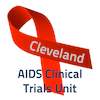$3.25M NIH grant to support research in oral manifestations of HIV, including mouth cancer
 Researchers at the Case Western Reserve University School of Dental Medicine will use a $3.25 million grant from the National Institutes of Health (NIH) to better understand how HIV impacts the human body, from mouth lesions to oral cancer.
Researchers at the Case Western Reserve University School of Dental Medicine will use a $3.25 million grant from the National Institutes of Health (NIH) to better understand how HIV impacts the human body, from mouth lesions to oral cancer.
HIV is a virus that attacks the body’s immune system and interferes with its ability to fight infections. More than a third of HIV patients will develop some form of oral side effects, like mouth ulcers from immune systems and can greatly impact quality-of-life.
The five-year research project will center on a type of white blood cell called regulatory T-cells, otherwise known as “Tregs.” These cells help the immune system signal an appropriate response to fight off infection. But sometimes Treg cells can malfunction, resulting in too many or too few of them. That can trigger diseases, including mouth and throat issues and eventually lead to prolonged inflammation. The goal is to identify genetic, microbiome and metabolic biomarkers that cause these oral complications.
Pushpa Pandiyan PhD, an associate professor of biological sciences at the School of Dental Medicine, is leading the research as principal investigator. The ACTU’s Dr. Jeffrey Jacobson will be involved with the study.
